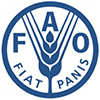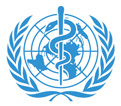Quick links
Collaboration Tool
What is Codex Alimentarius Commission?
The Codex Alimentarius Commission based in Rome, Italy, is an international organization jointly created in 1961 by the Food and Agriculture Organization (FAO) and the World Health Organization (WHO) of the United Nations as a Food Standards Program.
 |
 |
 |
The mission of the Codex Alimentarius Commission is to set international food standards that help governments to achieve adequate consumer protection. The commission helps to raise the awareness of governments on food safety issues and serves as a point of reference for food safety standards and food regulations. Codex also helps facilitate international trade in foods by preventing unscientific restrictions while considering differences in tradition, culture and legal systems among countries. The commission develops principles of a general nature as well as specific recommendations for certain food products.
Principle objectives of the Codex Alimentarius Commission:
- protecting the health of consumers
- ensuring fair practices in the food trade
- drawing world attention to the field of food quality and safety
The Codex Alimentarius Commission consists of numerous committees: 9 general subject committees, 13 commodity committees, 3 ad hoc intergovernmental task forces (food derived from biotechnology, animal feeding and fruit and vegetable juices), as well as 6 regional coordinating committees, which were established to help identify priorities and issues in specific regions. In eight of them Croatia actively participates


 Print page
Print page



